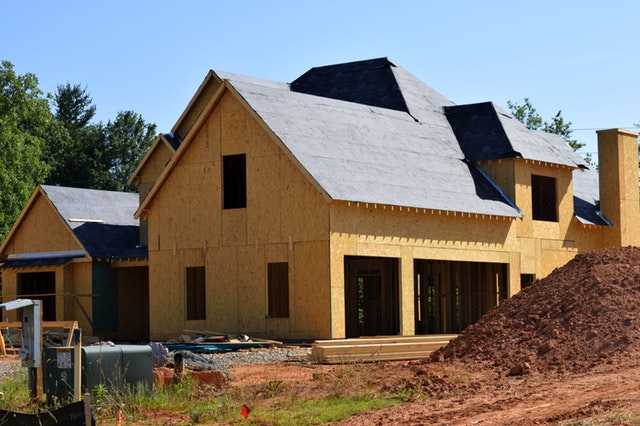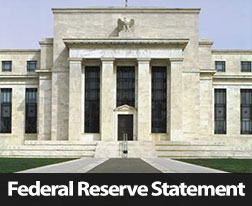 Don’t panic, a looming recession may be good news for those wanting to sell their homes. The experts say this recession may happen in 2020, so there is still plenty of time to make plans for how to deal with a potential economic downturn.
Don’t panic, a looming recession may be good news for those wanting to sell their homes. The experts say this recession may happen in 2020, so there is still plenty of time to make plans for how to deal with a potential economic downturn.
In many parts of America, especially in popular cities, the real estate markets are super hot for sellers. Home sales are coming in at prices that are record highs. For sellers in these hot markets, it might be time to sell. For buyers, able to wait until next year, the prices may come down.
What The ‘Experts’ Say
A Pulsenomics survey of 100 real estate market experts says that the pressures on the economy, which are negative, are not coming from the housing market this time. In fact, the Federal Reserve announced it will not make any changes until 2021, so the financial market supporting home loans will be coasting along pretty much as it is now.
The damage to the U.S. economy is coming from the delayed effects of the tariffs. Whether one agrees or disagrees with the tariffs is not the issue. The tariff changes that already went into effect, will have an economic impact next year or the year after.
Economists use the analogy of observing a big, slow-moving tidal wave. Scientists can see it coming from miles away. If those potentially affected by the danger pay attention to the warnings soon enough, they may have a chance to get out of the way.
Half the experts see the tariffs having a significant impact in 2020. Most of the other half see it coming in 2021. Nobody thinks the recession will hit before the end of 2019.
Summer 2019 – Selling Time
Home sales toward the end of summer are usually the strongest when compared to other times of the year. After returning from vacation, and before school starts, it is a popular time to look for a home when the weather is still nice outside.
Next Year 2020 – Buying Time
If a recession hits in 2020, then home sales prices may go down due to lowered demand. Again, this may be helpful for buyers who wait until next year to buy a home.
Conclusion
It is interesting to see that any possible recession will not be caused by the housing market this time. Real estate experts think that the housing market will price-in the effect of the recession up to one year ahead of when it hits.
If there are plans to sell a home, such as going into retirement and wanting to downsize or buy an RV for a happy retirement traveling, now may be an opportune time to consider selling.
If there are plans to buy a home and there is no rush, just take the time to work with your real estate agent to get a good deal and wait for a possible overall economic slowdown to get a better price. And be sure to contact your trusted home mortgage professional to discuss your financing options.
 Home price growth slowed again in May according to Case-Shiller home price indices. Home price growth slowed for the 14th consecutive month to its lowest rate in 12 years. Case-Shiller’s National Home Price Index showed 3.40 percent growth year-over-year in May as compared to April’s year-over-year reading of 3.50 percent.
Home price growth slowed again in May according to Case-Shiller home price indices. Home price growth slowed for the 14th consecutive month to its lowest rate in 12 years. Case-Shiller’s National Home Price Index showed 3.40 percent growth year-over-year in May as compared to April’s year-over-year reading of 3.50 percent. The federal government adopted the Housing and Community Development Act in 1977, and the Community Reinvestment Act (CRA) portion was designed to prompt lending institutions to provide mortgages for low- and moderate-income Americans. The underlying reasoning for the CRA was to discourage discriminatory lending practices that inhibited low-income communities and neighborhoods.
The federal government adopted the Housing and Community Development Act in 1977, and the Community Reinvestment Act (CRA) portion was designed to prompt lending institutions to provide mortgages for low- and moderate-income Americans. The underlying reasoning for the CRA was to discourage discriminatory lending practices that inhibited low-income communities and neighborhoods. Home Builder sentiment rose one point in July according to the National Association of Home Builders Housing Market Index. 2019 builder confidence in housing market condition continued to fall short of 2018 levels. July’s Housing Market Index reading of 65 was one point higher than June’s reading.
Home Builder sentiment rose one point in July according to the National Association of Home Builders Housing Market Index. 2019 builder confidence in housing market condition continued to fall short of 2018 levels. July’s Housing Market Index reading of 65 was one point higher than June’s reading. The most expensive home sold in America, so far, was a New York penthouse that sold for $238 million in January 2019. It is on the top of a building that overlooks Central Park. The 26-story luxury condo building designed by Robert A. M Stern is nearly all sold out.
The most expensive home sold in America, so far, was a New York penthouse that sold for $238 million in January 2019. It is on the top of a building that overlooks Central Park. The 26-story luxury condo building designed by Robert A. M Stern is nearly all sold out. Case-Shiller’s 20-City Home Price Index for April showed further declines in home price growth with 2.50 percent year-over-year home price growth as compared to March home price growth of 2.60 percent. New York City home prices held steady month-to-month and Seattle, Washington’s home prices were unchanged year-over-year after posting 13 percent home price growth in 2018.
Case-Shiller’s 20-City Home Price Index for April showed further declines in home price growth with 2.50 percent year-over-year home price growth as compared to March home price growth of 2.60 percent. New York City home prices held steady month-to-month and Seattle, Washington’s home prices were unchanged year-over-year after posting 13 percent home price growth in 2018. Last week’s economic events included weekly releases on new jobless claims, mortgage rates and testimony by Fed Chair Janet Yellen concerning the Federal Reserve’s monetary policy. Here are the details:
Last week’s economic events included weekly releases on new jobless claims, mortgage rates and testimony by Fed Chair Janet Yellen concerning the Federal Reserve’s monetary policy. Here are the details: Last week’s scheduled economic news included reports on construction spending and several labor-related reports along with weekly reports on mortgage rates and new jobless claims. The details:
Last week’s scheduled economic news included reports on construction spending and several labor-related reports along with weekly reports on mortgage rates and new jobless claims. The details: Last week’s economic events included S&P Case-Shiller’s home price indexes, reports on new and pending home sales and the Fed’s FOMC statement. The details:
Last week’s economic events included S&P Case-Shiller’s home price indexes, reports on new and pending home sales and the Fed’s FOMC statement. The details: According to statement issued at the conclusion of today’s Federal Open Market Committee meeting, committee members decided against raising the target federal funds rate. Mixed economic conditions, slower economic growth in the 4th quarter and low inflation contributed to the decision against raising rates. The target federal funds rate was raised in December to a range of 0.25 to 1.59 percent after remaining at 0.00 to 0.25 percent for several years. While rising fed rates were expected to cause a hike in mortgage rates, mortgage rates fell after December’s rate hike.
According to statement issued at the conclusion of today’s Federal Open Market Committee meeting, committee members decided against raising the target federal funds rate. Mixed economic conditions, slower economic growth in the 4th quarter and low inflation contributed to the decision against raising rates. The target federal funds rate was raised in December to a range of 0.25 to 1.59 percent after remaining at 0.00 to 0.25 percent for several years. While rising fed rates were expected to cause a hike in mortgage rates, mortgage rates fell after December’s rate hike.